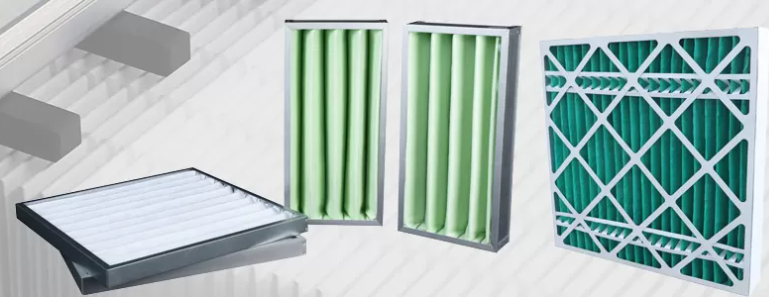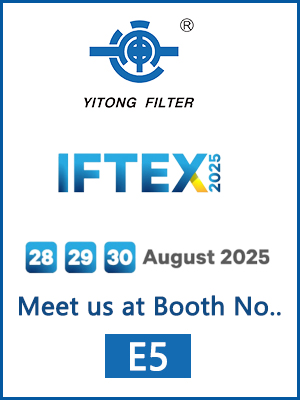 July 03, 2023
July 03, 2023
In environments such as cleanrooms and dust-free rooms, air filters play a crucial role in effectively filtering particles and pollutants from the air, ensuring the cleanliness of the environment. Primary air filters are a common type of air filters, with G3 and G4 being two common specifications. This article will provide a detailed explanation of the differences between G3 and G4 primary air filters and offer a selection guide to help you better understand and choose the appropriate primary air filter for your needs.

Introduction to Primary Air Filters
Primary air filters, as a type of filter in air filtration systems, are primarily used to filter out coarse and large particles from the air, effectively preventing them from entering subsequent filters or the environment and affecting cleanliness. G3 and G4 are two common specifications of primary air filters.
Features and Applications of G3 Primary Air Filters
G3 primary air filters are widely used and possess the following characteristics:
High filtration efficiency: G3 filters typically have a filtration efficiency ranging from 85% to 99%, effectively filtering out most coarse and fine particles.
Low resistance: Compared to G4 filters, G3 filters have lower resistance, allowing for a higher airflow rate.
Longer service life: G3 filters usually use thicker filter media, providing a longer service life.
Wide range of applications: G3 filters are suitable for environments with higher air quality requirements, such as cleanrooms, dust-free rooms, and industrial air conditioning systems.
Features and Applications of G4 Primary Air Filters
G4 primary air filters have some differences compared to G3 filters and possess the following characteristics:
Higher filtration efficiency: G4 filters typically have a filtration efficiency ranging from 90% to 99.9%, better filtering out fine particles and pollutants from the air.
Relatively higher resistance: Due to the higher filtration efficiency of G4 filters, they have slightly higher resistance compared to G3 filters, requiring a greater pressure drop to pass through.
Shorter service life: Because of the higher filtration efficiency, G4 filters tend to get clogged by particles more quickly, resulting in a relatively shorter service life.
Wide range of applications: G4 filters are suitable for environments with even higher air quality requirements, such as electronics factories, pharmaceutical plants, and food processing facilities.
G3 and G4 primary air filters are both common specifications in the category of primary air filters, and they have differences in filtration efficiency, resistance, and service life. When selecting the appropriate filter, consider the specific application and the required air quality. If you require higher air quality with lower resistance and longer service life, G3 filters are a suitable choice. On the other hand, if you require even higher air quality, can tolerate a certain level of resistance, and need more frequent replacements, G4 filters should be selected.
- Want to know more about HEPA H13 vs H14 Filter?
- Approved vs. Standard HEPA Filter Types: Making the Right Choice
- Understanding and Controlling Cleanroom Contamination Sources
- What is the Difference Between Pre-Filter and Fine Filter?
- What Types of Filters Are There for Ventilation Systems?
- What is the difference between MERV Filter and HEPA Filter?
Any Questions? Give us a call or contact us by e-mail info@yitong-filter.com, our filter experts at any time!

